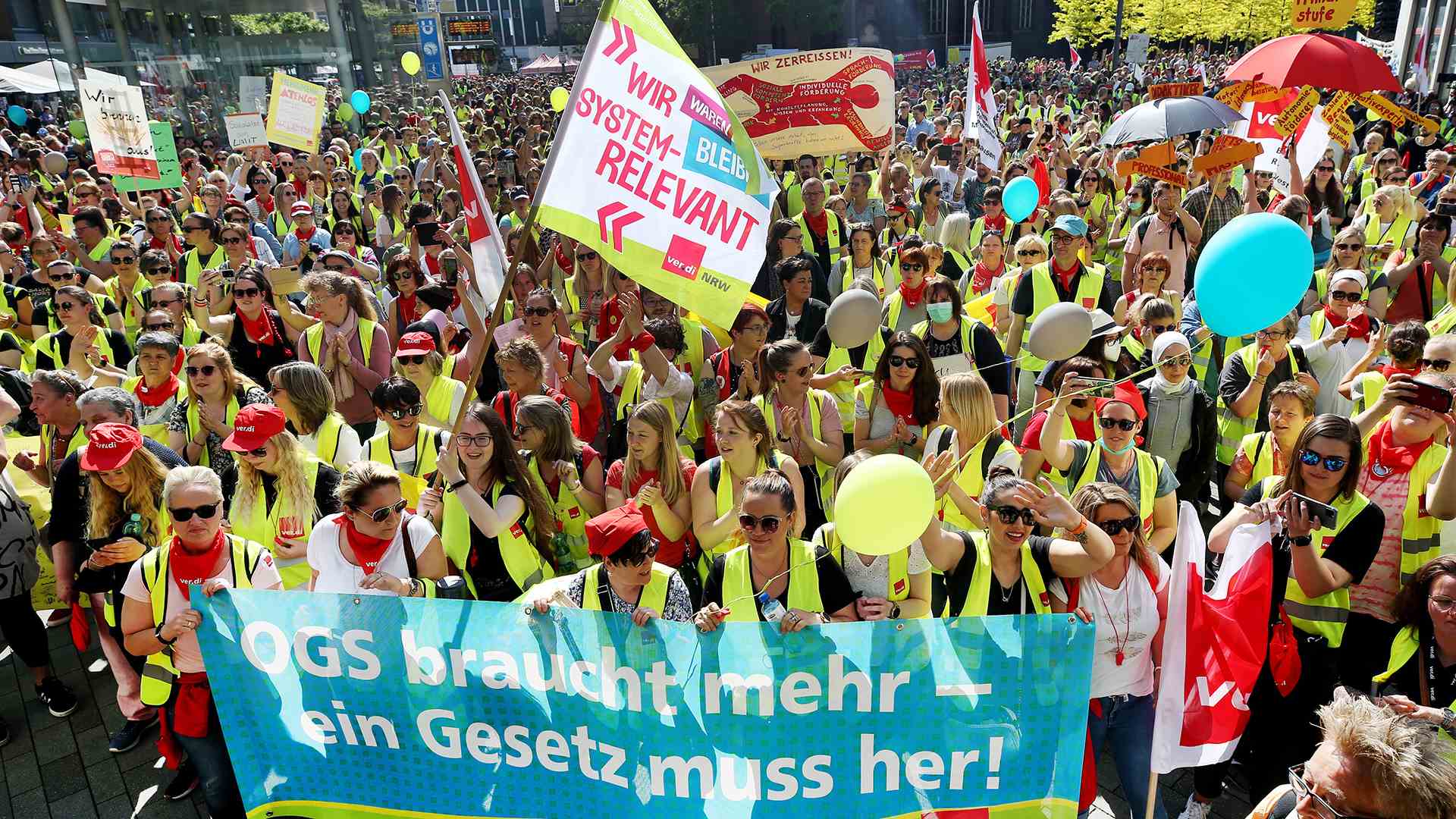analysis
Status: 05/12/2022 11:50 a.m
If everything gets more expensive, the unions want to push through more money for the employees. But employers want to save more. Both at the same time is not possible. What does this mean for the collective bargaining rounds of this year?
The advice to save more in times of high inflation should rightly upset people from lower wage brackets. If there was hardly anything left for the high edge before, because everything went to the cost of living, large parts of full-time employees are now asking themselves how they are still going to pay for the increasingly expensive petrol, groceries, health insurance or heating costs. What they need quickly is what is known as inflation compensation – i.e. at least as much more wages as the increased cost of living has made them poorer.
But that’s exactly what the companies want to avoid, and they have good arguments: The prices for raw materials and energy have also recently reached levels that were not considered possible. In addition, it would be likely that entrepreneurs who have to pay higher wages would also raise their prices, which would fuel inflation even further.
Saving on wages, bulking up on dividends?
“Wage policy cannot resist inflationary developments,” says political scientist Wolfgang Schroeder. For him, postponing wage agreements, as happened recently in the chemical and pharmaceutical industries, does not automatically lead to better results, because employees now have to put up with enormous losses in purchasing power and nobody knows how long the pandemic and the Ukraine war will continue to have a negative impact on the economy influence. In addition, the dividends for the shareholders of most DAX companies even increased last year. It’s difficult to explain to employees why their wages shouldn’t also rise sharply.
For Schroeder, the well-being of the working population counts a lot, because their satisfaction is a guarantee of security: “Life dissatisfaction affects tendencies towards right-wing populism and rejection of the political system. The tendency towards higher crime also shows significant connections to a declining quality of life.”
Employers don’t feel responsible
But the employers’ appeal to the unions to make moderate demands in the important wage rounds due later this year goes in the other direction. “Companies are not responsible for inflation compensation,” says Employer President Rainer Dulger. “Politically driven energy prices must also be corrected by politicians.” Massive wage increases, he fears, could trigger a “wage-price spiral,” fueling inflation and leading to economic stagnation, if not recession. “The purchasing power balance cannot be the yardstick for collective wage increases. It wasn’t in the last ten years, when prices hardly rose but wages rose sharply.”
Union representatives see the current situation as more of a “price-wage spiral” and not the other way around. The new DGB chairwoman Yasmin Fahimi, who sees the reasons for the inflation not in rising wages but in disrupted supply chains and a lack of raw materials, believes that wage restraint sends the completely wrong signal: “We won’t let the nonsense of a wage-price spiral talk us into it ‘ she said in her inaugural speech. The employees should be charged with crisis management, “we don’t do that”.
“Relief package has gaps”
That sounds more moderate in the case of the union-affiliated Hans Böckler Foundation. In addition to companies, politicians are also seen as having a duty to solve the distribution problems. Thorsten Schulten, head of the collective bargaining archive of the foundation’s Institute for Economic and Social Sciences (WSI), says: “Political measures such as the federal government’s current relief package are important. It has gaps and is probably not sufficient, so that further measures, such as a Gas price cap must be discussed.”
Despite the crisis, quite a few companies made excellent profits last year, which they would pass on to their shareholders in the form of dividends. “So there is definitely scope for wage increases,” says Schulten.
Relief for low earners as an option
Political scientist Schroeder sees it that way too. Many companies have already passed on the increased costs to their customers and the proportion of wages in the total costs is becoming smaller and smaller anyway, especially in the manufacturing industry. He pleads for a differentiated view of the lower wage brackets. They are the hardest hit by inflation and need a bigger wage increase than their higher-earning peers.
Perhaps the solution to the apparently unsolvable situation lies in such split financial statements. And the inflation is offset – at least for those who previously lost their livelihood.

